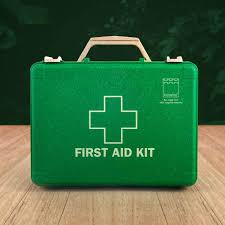
CPCS Renewal Test has been replaced with Online CPD Course. NOCN Group, a leading provider of skills solutions for the construction sector, has introduced a new online CPD course to replace the traditional CPCS Renewal Test.
You can apply to renew your CPCS Blue Competent Operator card, as long as all other renewal requirements have been met.
For more information on how to renew your card, visit https://www.nocnjobcards.org/CPCS/cpcs-blue-competent-operator-card/cpcs-blue-competent-operator-card-renewal/
You can apply to renew your card even if you have not passed all of your renewal tests.
If you do not pass your Renewal Test(s), you must book another test slot and retake the test(s). A new test fee will need to be paid when you retake a test.
You can retake the test(s) as many times as you need

It depends what you want to teach and for who. If you want to teach for most awarding bodies a teaching qualification such as the Award in Education and Training is required alongside a qualification for the subject, usually at a higher level. There are some exceptions to this and you should check with the awarding body, for example, If you want to teach plant qualifications NPORS has a Novice course which does not require you to have the teaching qualification. See our NPORS Instructor FAQ.
A. The 10-day is designed for Experienced Operators with no teaching qualification where the 5-day is aimed at Existing Instructors who wish to become NPORS registered. To be eligable for the 5-day course you are required to hold any of the following instructional techniques qualifications:
Level 5 Diploma in Education and Training
RTITB, AITT, ITSSAR, IPAF, ALLMI, Lantra
MOD Qualifications
Cert Ed
PTLLS, CTLLS, DTLLS
Level 3 Award in Education and Training
Level 4 Certificate in Education and Training
It depends what you want to assess and for who. If you want to assess for most awarding bodies an assessors qualification such as the Certificate in Assessing Vocational Achievement is required alongside a qualification for the subject, usually at a higher level. There are some exceptions to this and you should check with the awarding body.

The difference between a training course and a vocational qualification lies in their purpose, scope, and recognition:
In summary, a training course sharpens specific skills or knowledge, whereas a vocational qualification certifies overall competence and is more widely recognized in professional settings.
The key differences between in-house training and nationally recognized training lie in their scope, purpose, and accreditation:
| Feature | In-House Training | Nationally Recognized Training |
|---|---|---|
| Purpose | Specific to one company | Industry-wide recognition |
| Scope | Limited to internal use | Transferable across workplaces |
| Accreditation | Generally informal | Formal qualifications/certificates |
| Career Opportunities | Limited to the current workplace | Enhances employability nationwide |
In summary, in-house training is practical and company-specific, while nationally recognized training offers formal qualifications and wider career mobility.
The Scottish Credit and Qualifications Framework (SCQF) and the National Vocational Qualifications (NVQ) levels are both systems used to measure qualifications, but they are specific to Scotland and the rest of the UK, respectively. Here’s how they generally compare:
| SCQF Level | NVQ Level | Description |
|---|---|---|
| Level 4 | NVQ Level 1 | Basic knowledge and skills, suitable for routine tasks. |
| Level 5 | NVQ Level 2 | Broader knowledge and skills, suitable for semi-skilled work. |
| Level 6 | NVQ Level 3 | More complex knowledge and skills, often involving supervisory responsibilities. |
| Level 7 | NVQ Level 4 | Advanced knowledge and skills, suitable for technical or managerial roles. |
| Level 8 | NVQ Level 5 | Highly specialized knowledge, often at a professional or senior management level. |
Both frameworks aim to ensure qualifications are standardized and comparable, but SCQF is specific to Scotland, while NVQs are part of the Regulated Qualifications Framework (RQF) used in England, Wales, and Northern Ireland.
The Scottish Credit and Qualifications Framework (SCQF) allows you to compare your qualifications to others across different frameworks, such as the Regulated Qualifications Framework (RQF) in England, Wales, and Northern Ireland, or the European Qualifications Framework (EQF). Here’s a general comparison:
| SCQF Level | RQF/NVQ Level | EQF Level | Examples of Qualifications |
|---|---|---|---|
| Level 12 | Level 8 | Level 8 | Doctoral Degree |
| Level 11 | Level 7 | Level 7 | Master’s Degree |
| Level 10 | Level 6 | Level 6 | Honours Degree |
| Level 9 | Level 5 | Level 5 | Ordinary Degree, Higher National Diploma (HND) |
| Level 8 | Level 4 | Level 5 | Higher National Certificate (HNC), Advanced Certificate |
| Level 7 | Level 3 | Level 4 | Advanced Higher, SVQ Level 3 |
| Level 6 | Level 3 | Level 4 | Higher, National Certificate |
| Level 5 | Level 2 | Level 3 | National 5, SVQ Level 2 |
| Level 4 | Level 1 | Level 2 | National 4, SVQ Level 1 |
| Level 3 | Entry Level 3 | Level 1 | National 3 |
This table provides a rough equivalence, helping you understand how your SCQF level aligns with qualifications in other systems.

A. EFAW training enables a first-aider to give emergency first aid to someone who is injured or becomes ill while at work.
FAW training includes EFAW and also equips the first-aider to apply first aid to a range of specific injuries and illnesses.

Yes, as an employer, you are required to ensure adequate first-aid arrangements in your workplace. The Health and Safety (First-Aid) Regulations 1981 mandate that employers provide appropriate equipment, facilities, and personnel to ensure employees receive immediate attention if they are injured or taken ill at work.
Whether you need qualified first aiders depends on the outcome of a first-aid needs assessment, which considers factors such as:
For example:
If your needs assessment identifies the requirement for trained first aiders, they should complete appropriate training, such as Emergency First Aid at Work (EFAW) or First Aid at Work (FAW) courses.
Information provided in this answer originates from www.hse.gov
Conducting a first-aid needs assessment is key to determining whether qualified first aiders are required in your company. Here’s a step-by-step guide to help you evaluate and establish the right arrangements: